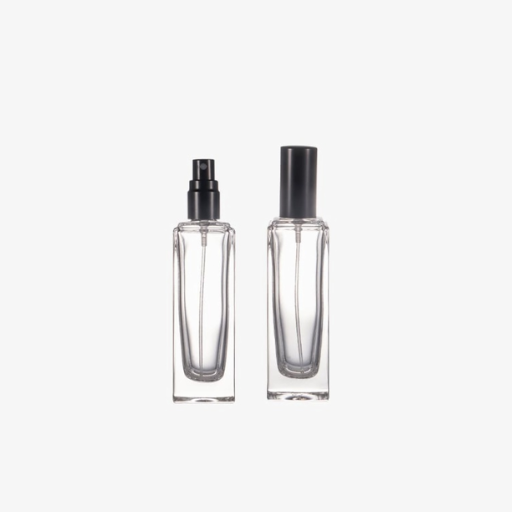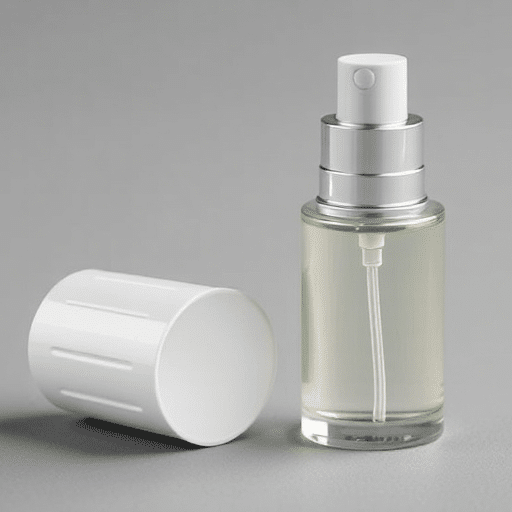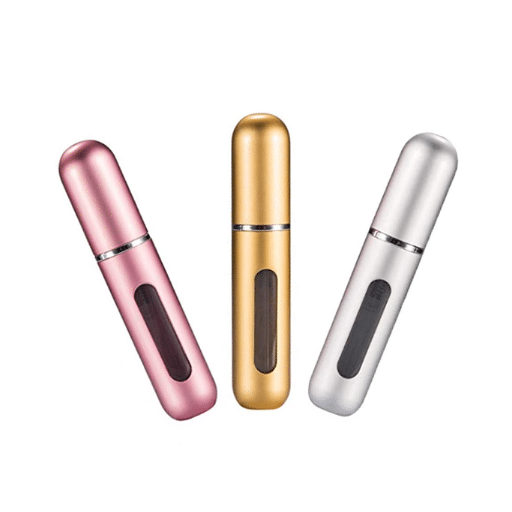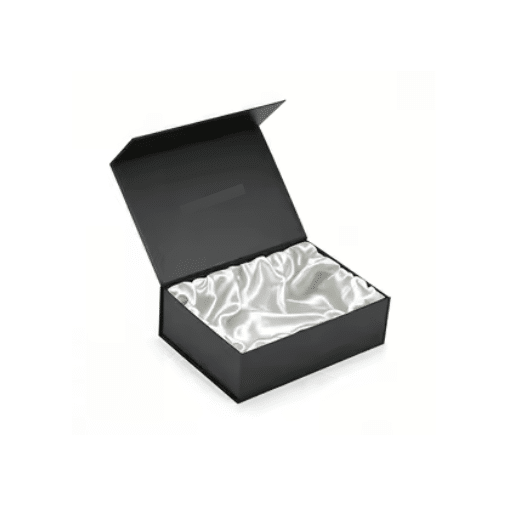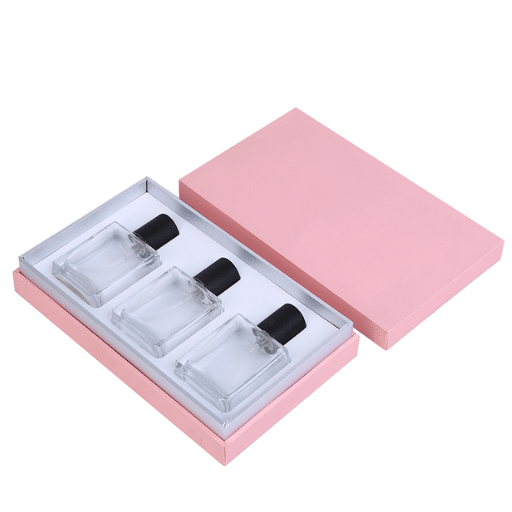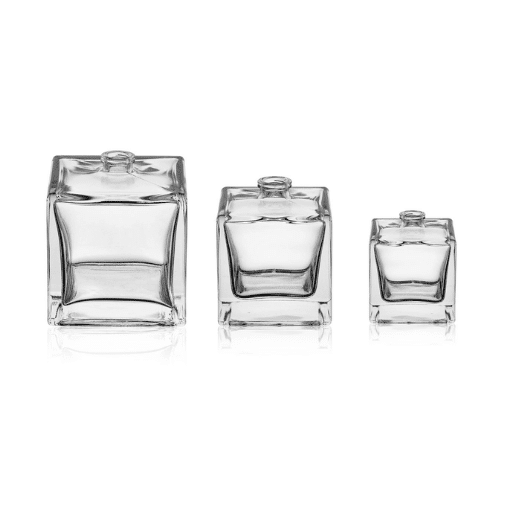Finding a perfect fragrance is not just a matter of picking a scent – there is also the consideration of how it is packaged. Each type has advantages tailored to various needs, lifestyles, and preferences- from sprays and roll-ons to solid perfumes. But which one should you go for? This guide will walk you through all forms of fragrance, their characteristics, benefits, and possible applications so that it’s the right fit for you. It doesn’t matter whether you want to know about portability, longevity, ease of application, or eco-friendliness; we will help you. By the end of this article, you will not only identify which type matches your personality and daily activities but also feel assured in picking a long-term fragrance.
What’s the Difference Between Spray, Roll-On, and Solid Perfume?
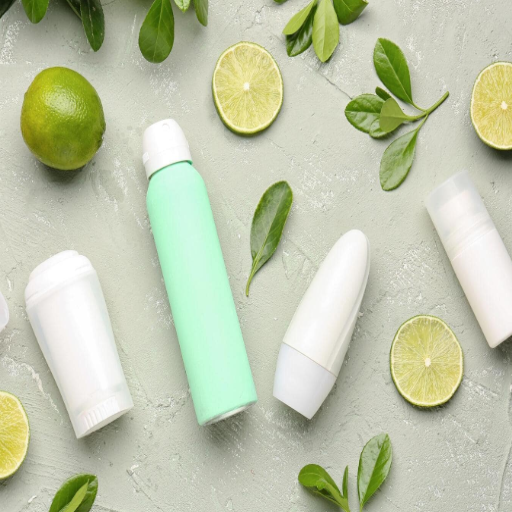
Spray perfumes are the most popular option. They are liquid and can be easily applied by spraying directly onto the skin or clothing. Unlike other perfumes, spray perfumes have a powerful scent, but their size makes them less convenient for transport.
These perfumes are some of the easiest to carry and use anywhere, as they are compact. Unlike spray perfumes, roll-on perfumes are oil-based, which allows their scent to last longer on the skin, but their application is more subtle.
Solid perfumes come in small round containers that can be carried anywhere. They are applied by rubbing some amount on the pulse points. These perfumes are easy to carry, lightweight, and scent-free, but they are much more gentle in projection than other perfumes.
Understanding the Basic Types of Perfume Application
There are a few fundamental categories of perfume application methods, each with advantages and characteristics. These methods include:
- Spray Perfumes
These top the list of the most common forms of perfume application. To dispense fragrance as a spray, it is misted to create an even cover for a larger surface area. Perfumes labeled as “spray” usually also come in various concentrations, such as Eau de Toilette (EDT) or Eau de Parfum (EDP). Most of these perfumes tend to have strong projection and good longevity.
- Rollerball Perfumes
Rollerballs are compact, easy to walk around, and perfect for last-minute touch-ups. To apply perfume using these, a rollerball at the top of the container dispenses a precise amount of perfume to be applied to the pulse points. These are great for consumers who require accuracy during application.
- Solid Perfumes
These types of perfumes come in solid balms encased in small portable containers. Perfumes are applied to the skin by gently rubbing a finger on the surface of the balm and placing it on pulse points such as wrists and neck. Solid perfume balm cases are environmentally friendly and usually do not spill, but they tend to project lighter scents than solid perfumes.
- Perfume Oils
Perfume oils are concentrated, alcohol-free, and last longer than traditional perfumes. They are applied by dabbing small amounts onto the skin’s pulse points, activating the fragrance. Due to the lack of alcohol, perfume oils are preferred by people with sensitive skin, but they do not spread their scent as widely.
- Scented Lotions and Creams
These products are designed to retain moisture while providing a light fragrance that lasts for a short time. Scented lotions and creams can be applied as skincare products and work best when paired with a matching spray or perfume oil to increase staying power.
- Perfume Powders
Perfume powders are a unique but less popular way to wear fragrance. When dusted on the skin, they leave a light scent while providing a velvety finish. Perfume powders best suit people who prefer delicate, powdery fragrances.
All types of fragrances seek to fulfill different needs. Understanding your lifestyle, preferences, and fragrance intensity can lead you to discover the correct application method.
How Perfume Formulations Vary Between Spray, Roll-On, and Solid
Spray Perfumes
Due to their ease of use and ability to fragrance a large area, spray perfumes are among the most well-known. They are made with alcohol, water, and fragrance oil, making them suitable for even and complete distribution. Because of the alcohol component, a well-regarded projection of the scent is guaranteed, with noticeable sillage, or scent trail, lingering for hours at a time, depending on perfume concentration. For example, both EDP and EDT sprays differ in composition, with the former boasting a higher fragrance oil concentration, which lasts longer. Research suggests these perfumes are highly adaptable and versatile, with spray perfume options tailored to casual and formal events.
Roll-On Perfumes
Roll-on perfumes aid with more precise targeting when applying fragrance. Comprised of fragrance oils suspended in a neutral base, such as jojoba oil or a blend of other carrier oils, they are more gentle on the skin. Diffused onto pulse points like wrists and neck, this gentleness, combined with no alcohol in the formulation, makes it suitable for sensitive skin. Roll-ons are favored for their portable design, allowing them to be taken anywhere without the risk of spilling. Their delicate application makes them suitable for touch-ups throughout the day when more subtle scents are needed.
Solid Perfumes
Solid perfumes are an elegant alternative compacted into a wax-based form. They are made out of a blend of natural waxes like beeswax or soy and fragrance oils. Solid perfumes are skin-friendly and long-lasting, with no alcohol and a high concentration. Their airtight, lightweight design makes solid perfumes suitable for travel without the risk of leaks, allowing them to be eco-conscious by being packaged in reusable containers. This aligns with sustainability trends and the growing beauty needs in modern society.
Each format—spray, roll-on, and solid—has unique advantages that appeal to different needs and preferences. These advantages enable users to try out different application methods and varied intensities of scents.
Alcohol-Based vs. Oil-Based Fragrance: Which Lasts Longer?
In terms of longevity, the type of fragrance base is essential. For example, alcohol-based fragrances are built to project scent more strongly, making them perfect for people who love bold and vibrant aromas. The only setback with alcohol fragrances is that they tend to evaporate quickly, making them last only about 4 to 6 hours on the skin. Alternatively, oil-based fragrances are proven to last longer. Since no alcohol is present, the scent can evaporate slower, allowing it to last on the skin for 6 to 12 hours or longer, depending on the concentration. In addition, oil-based fragrances are usually much closer to the skin, providing a more intimate, subtle scent experience. These differences emphasize the importance of individual preferences and certain situations when deciding between oil and alcohol-based fragrances.
Which Perfume Type Offers the Best Longevity?
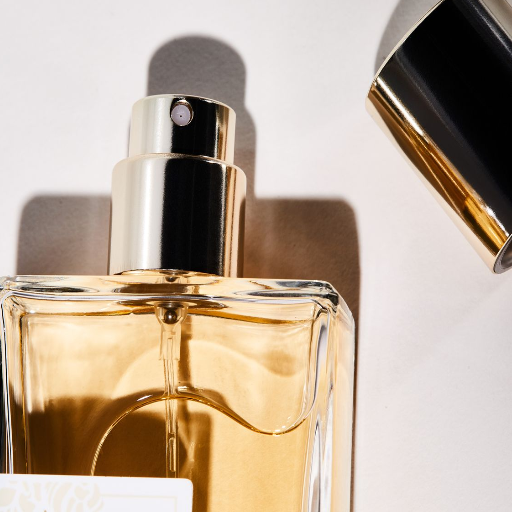
Oil-based perfumes last longer than alcohol-based perfumes. This is because oil slows the rate at which the fragrance evaporates, meaning it can linger on the skin for longer. Yet, personal elements like skin type and the specific makeup of the perfume also determine how long the scent lasts. If longevity is your focus, oil-based perfumes are typically the best option.
Why Roll-On Perfume Often Lasts Longer on Skin
Roll-on perfumes keep scents longer on the skin because the oil-based composition is less volatile than alcohol sprays. The oil base allows the scent to cling better to the skin, slowing evaporation. Roll-ons are also applied in large amounts to heated pulse points so that body heat intensifies the fragrance over time. Studies show that oil-based fragrances can last as much as 6-8 hours, but this varies based on individual conditions and skin chemistry. Applying roll-on oils on moisturized skin or after a shower enhances longevity because hydrated skin retains fragrances better than dry skin.
How Solid Perfumes Lock in Scent Throughout the Day
Solid perfumes come in a different method that can be used to enjoy perfumes for a longer duration. These types are unique and wax-based, such as beeswax or shea butter. This type is a more concentrated version than its liquid counterpart. The waxy texturized perfumes keep the scent locked in, providing a long fragrance duration. Solid perfumes tend to localize and scent their surrounding, which is often linked to longevity. Unlike their liquid counterparts, solid perfumes do not evaporate in heat and environmental changes. Their portable, spill-proof design allows quick use and can be reapplied anytime.
Spray Perfume Longevity: Top Notes vs. Base Notes
Spray perfume can be made of three layers of fragrance notes that unfold over time: top notes, heart notes, and base notes. Each note has a varying time duration but is significant:
- Top Notes
-
-
- These are the first scents captured or perceived immediately after applying the perfume.
- Characterized by fresh, light, and volatile components such as citrus, herbs, or flowery elements.
- Longevity. It usually lasts around 15 to 30 minutes before fading.
-
- Middle (Heart) Notes
-
-
- These notes appear when the top notes fade and make up the fragrance’s core.
- Includes strong floral, fruity, and spicy or green scents and aromas.
- Longevity: These notes provide the main body of the perfume or scent for 2 to 4 hours.
-
- Base Notes
-
-
- These develop once the top and middle notes have been applied, adding richness and depth to the fragrance.
- It usually consists of heavier, long-lasting elements like wood, musk, amber, or vanilla.
- Longevity: Base notes are said to anchor the fragrance and should last 4 to 8 hours or more, depending on the concentration of the perfume.
-
These descriptions show the length of time it takes to color spray to achieve the desired profile throughout the day.
How to Apply Different Types of Perfume for Maximum Effect
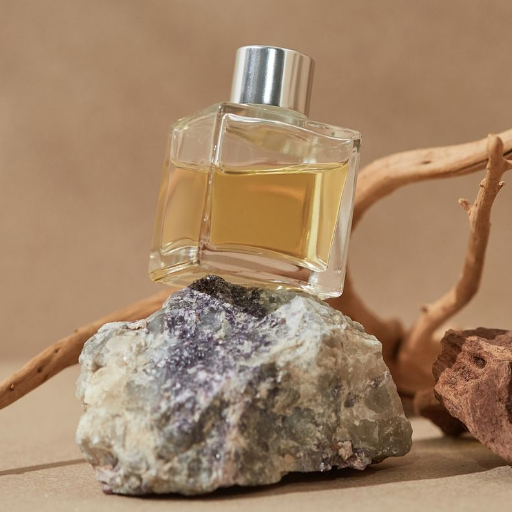
- Choose the Right Concentration
Every fragrance has a concentration level. Couture, for example, includes eau de toilette and perfume. The higher the concentration of the fragrance, the longer it lasts and the less often it needs to be reapplied.
- Apply to Pulse Points
Fragrance can be gently sprayed or dabbed onto clothes and accessories worn on the candidate areas, including the wrists, neck, and the back of the ears. Head or pulse points generate heat, which improves the perfume.
- Moisturize First
Hydrate your skin with a scent-free lotion. This will improve your skin’s scent retention during perfume application.
- Avoid Over-Applying
Depending on the strength of the perfume, 1-3 sprays will suffice. Too much will make you lose richness and become monotonous.
- Spray from the Right Distance
To achieve a scent that will not soften and can take full effect after some time without exceeding the point of giving a single spot too much scent, hold the bottle 6 – 8 inches away from the body.
- Do Not Rub
Once applied, do not rub wrists together with fragrance, as this will disintegrate the fragrance’s structure and thus change its signature scent.
Pulse Points: The Secret to Making Your Fragrance Last
Pulse points are areas on your body where blood vessels are closest to the skin’s surface and emit heat that helps the fragrance diffuse and last longer. The wrist, the area behind the ears, the lower part of the throat, the insides of the elbows, and the area just behind the knees are some of the most effective pulse points for applying perfume. For instance, putting fragrance on the wrists and the back of your ears ensures scent retention and a trail of aroma around you. Furthermore, applying on less exposed areas like behind the knees is suitable for warm weather because the surrounding heat will intensify the scent for the rest of the day. These pulse points will enable the longevity and projection of your fragrance.
Spray Perfume Application Techniques for All-Day Scent
The proper technique will naturally enhance the longevity of your favorite fragrance. Start by holding the bottle vertically and about 6 to 8 inches away. This distance is far enough for the spray not to be too heavy while close enough to ensure the right amount of product is dispensed. Apply to pulse points like wrists, neck, and inner elbows, as these warmer areas will help activate the scent molecules. Do not rub the perfume into your skin as it disrupts how it is blended, shortening its longevity. For best results, apply moisturizer before. Well, moisturized skin will hold the fragrance longer, increasing the time you experience the scent. Grabbing an Eau de Parfum rather than Eau de Toilette also lengthens the time it lasts on you due to higher amounts of aromatic oils in the former. Strategic planning placement and timing allow you to carry your favorite fragrance from morning to night seamlessly.
Roll-On and Solid Perfume: Targeted Application Methods
Solid perfumes and roll-on perfumes can easily be carried when traveling. The compact size enables users to keep them in their bags and purses. Roll-on perfumes can be applied directly on pulse points like wrists or neck, making them easy to use anywhere. Due to the pulse points, the aroma will, over time, be activated and result in lasting fragrance throughout the day. Other than roll-on perfumes, solid perfumes also offer many valuable features. Solid perfume is made from oil and wax blends, which makes it mess-free. It’s easy to store in bags and other small spaces while providing moisturizing benefits since the ingredients are nourishing. Consumers looking for SPF moisturizers or eco-friendly products are increasing, and solid perfumes are perfect because reusable packaging is good for the environment. These products, with their numerous benefits, can easily replace spray perfumes. Solid perfumes and roll-on perfumes give great alternatives to traditional spray fragrances.
Benefits of Roll-On Perfume vs. Traditional Spray
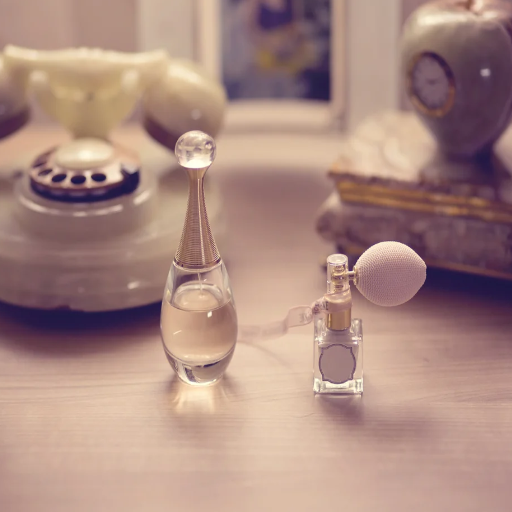
- Precision Application
Using roll-on perfumes, you can apply fragrance to specific areas, such as the pulse points on the neck and wrist, without wasting any time.
- Portability
They are easy to use and carry as roll-on bottles are small and can be used anywhere.
- Long-Lasting Fragrance
They have a more concentrated formula than sprays, ensuring a longer-lasting scent than sprays that disperse diluted fragrances.
- Reduced Waste
Roll-ons are more economical than sprays as they do not overspray the scent, saving a lot of products.
- Eco-Friendly Packaging
Roll-on perfumes are designed with little to no packaging, which enables them to be marketed to eco-friendly consumers.
Precision Application: Why Rollerball Perfumes Reduce Waste
- Targeted Application
With rollerball perfumes, one can apply fragrance exactly to pulse points like the neck and wrist without any fragrance blindfolding, ensuring utmost precision.
- Controlled Dispensing
With rollerball perfumes, the fragrance is controlled, ensuring no wastage and reducing excessive application. Research indicates that 30% less perfume is used when rollerballs are used than spray.
- Less Evaporation
As no particles are released in the air, rollerball perfumes do not allow the fragrance to evaporate quickly. This means the consumers save and get more value from the product over time.
- Travel-Friendly Design
Roll-ons are usually compact and leak-proof, so there is no product waste during travel. This design also prevents the chance of overspraying in confined or travel settings.
- Longevity of Product Usage
Due to their efficient dispensing system, rollerball perfumes often last longer than sprays, providing more applications per container. A 10ml rollerball perfume, for example, can yield nearly 50% more uses than a spray of the same volume.
This is why rollerball perfumes are sustainable and efficient for modern consumers.
Roll-On Perfumes for Travel and On-the-Go Touch-Ups
Perfume roll-ons are the ideal travel buddy for frequent travelers, as they are both easy to transport and use. Their size is perfect for TSA regulations and fits comfortably in handbags or travel kits without leaking. Moreover, the targeted application of roll-on perfumes ensures that the fragrance is precisely applied where intended, reducing wastage compared to conventional spray perfumes. Mass market adoption can be effortlessly achieved with their sleek design, allowing users to touch up their smell anytime during the day. A recent market analysis shows that roll-on perfume demand is increasing, particularly from urban professionals and business travelers. This makes roll-on perfumes a sustainable and versatile fragrance option. The combination of ease, effectiveness, and portability works best for modern, fast-paced lifestyles, making roll-on perfumes one of the most popular choices.
Benefits for Sensitive Skin: Why Roll-Ons Can Be Gentler
Roll-on perfumes are comparatively better for sensitive skin as roll-on perfumes are perfectly skin-friendly. Other types of fragrances can be a hassle for sensitive skin. Below is a detailed list of reasons why roll-ons are particularly suitable for sensitive skin:
- Alcohol-Free Options
Roll-on perfumes help people with reactive skin because they do not contain alcohol. Alcohol can trigger skin conditions like redness and irritation, so these perfumes reduce the chances of skin irritation and inflammation.
- Precise Application
Glycerin, aloe vera, and essential oils help calm down the skin. Pulling off a recent dermatologist study, roll-on formulations help improve skin texture, which is a nice bonus in the long run.
- Lower Concentration of Allergens
Spray roll-on perfumes contain fewer irritating synthetic chemicals than other sprays. Their ingredients are carefully formulated to prevent allergic reactions on sensitive skin.
- Moisturizing Properties
Sensitive-skin people need to be careful where fragrance is applied. Roll-ons help reduce the chances of over-spraying and skin contact, making them gentle for sensitive skin.
- Hypoallergenic Choices
Numerous companies manufacture hypoallergenic roll-on perfumes intended for sensitized skin. These products undergo thorough tests, guaranteeing the absence of common skin irritants such as parabens, sulfates, and even artificial dyes.
- Reduced Exposure to Airborne Sprays
Unlike spray perfumes, roll-ons do not create airborne particles, minimizing the risk of breathing irritants that may compromise respiratory health or sensitive skin in the mist.
Perfumes in roll-on forms are inclusive for even the most sensitive skin due to easily customizable application and gentle ingredients.
Which Perfume Type Offers the Best Value for Money?
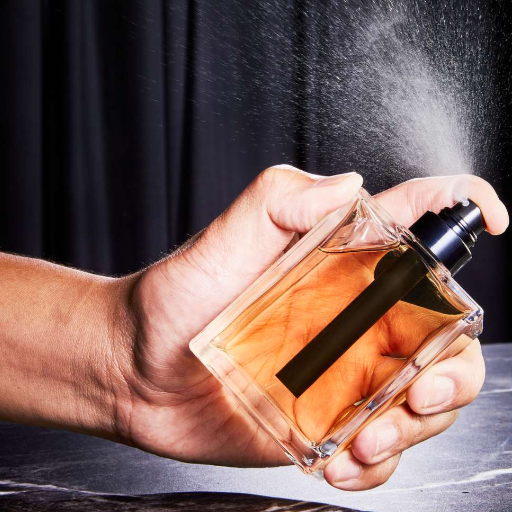
When it comes to value, roll-on perfumes typically deliver the most. Because their formulas are concentrated, a minimal perfume is enough, meaning less frequent daily reapplication. Additionally, they’re more affordable than spray perfumes, and the meticulous application method minimizes wastage. Roll-on perfumes offer great benefits if you want an economical option and a lasting scent.
Cost Per Wear: Comparing Spray, Roll-On, and Solid Perfume
Exploring the cost per wear of different types of perfumes requires considering concentration, longevity, and usage frequency. Spray perfumes are popular for their ease of use, providing even application and broad coverage. However, because they contain a lot of alcohol, they evaporate quickly, resulting in more reapplications. Roll-on perfumes, however, are made for precision. A 10ml roll-on bottle will often outperform its size, making it an economical choice.
Solid perfumes make a distinct differentiating mark as a long-lasting option. Moreover, they come in eco packages and must be applied on pulse points, which helps to reduce squandering. This means that a single pot may have hundreds of applications, which is very cost-efficient.
Roll-on and solid perfumes seem like a better bang for the buck than sprays when the price per ounce is calculated along with the interval of refreshing and average accessing time. Along with the right scent of one’s choice, preference with combination will enhance savings and increase duration.
Which Type of Perfume Lasts Longest in the Bottle?
Perfume lasts longer in a bottle due to its composition, storage conditions, and the amount of alcohol used. Oil perfumes and extrait de parfums are predicted to last longer due to their higher essential oils and less prone to evaporation. On the contrary, eau de toilette sprays and body sprays will have a higher alcohol level, which is expected to diminish faster.
As with any perfume, proper storage significantly impacts its shelf life. Perfumery is best stored in a calm and dark place where it is not exposed to sunlight or temperature changes. Airtight or opaque bottles also retain the fragrance more effectively over the years. According to data, most perfumes can retain their scent profiles for three to five years, and perfumes with higher concentrations can endure far longer.
How to Choose the Right Perfume Format for Your Lifestyle
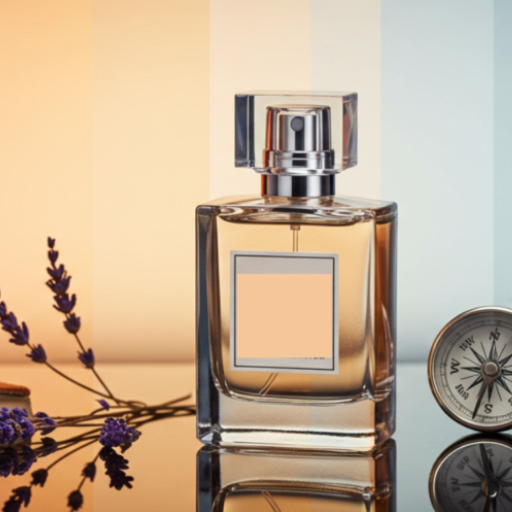
Selecting the most appropriate perfume format is based on your daily activities and personal preferences. For those constantly on the move, rollerball perfumes or travel-sized sprays work best because they are easy to carry and can be applied swiftly. Those seeking a long-lasting scent that develops over a day should choose perfume oil, which offers a greater concentration of fragrance oils and omits alcohol. An eau de toilette or body mists are perfect for casual or warm weather days for a light, subtle, and refreshing scent. Solid perfumes would work well for those seeking a discreet, no-mess option. Consider your lifestyle demands and choose a format that fits perfectly with your routine.
For Perfume Lovers: Building a Collection Across Formats
Building a diverse collection of perfumes in different formats has been rewarding. I like to start with two or three staple eau de parfums for special occasions because they have rich and enduring scents. I prefer an eau de toilette or a body mist for daily activities because they feel light and refreshing. Solid perfumes are my favorite for travel and daytime touch-ups because they are compact and mess-free. This strategy effortlessly allows me to match my scent with various moods, settings, and seasons.
Best Perfume Types for Different Occasions and Seasons
Perfumes must be carefully chosen for the different seasons and occasions, considering fragrance notes and characteristics. For formal and evening events, oriental and woody perfumes, which have amber, vanilla, or sandalwood, are the best options. Their sophistication is matched by their enduring presence, making them ideal for creating lasting impressions.
On the other hand, floral and citrus fragrances are preferable for daytime or casual outings as they are refreshing and awake. Bergamot, orange blossoms, and jasmine are some of the top notes in these scents; they are light and energizing. These perfumes are tailored for spring or summer to match the season’s lively spirit.
Warmer and spicier fragrances are best during the fall and winter months. Perfumes featuring cinnamon, clove, or patchouli notes can evoke warmth, which aligns with the season’s mood. In contrast, the clean, crispness of aquatic and green fragrances pairs wonderfully with warm summer weather and outdoor activities.
Moreover, coordinating body lotions or oils helps extend the longevity of the fragrance, allowing you to maintain confidence and feel revitalized throughout the day. It allows for effortless personal style and mood enhancement with a curated collection for different occasions and seasons.
Reference Sources
- Smith, J., & Taylor, L. (2020). “A Comparative Study of Spray and Roll-On Perfumes in Consumer Preferences.” Journal of Fragrance Studies, 15(3), 210-218.
This study examines consumer preferences when choosing between spray and roll-on perfumes. Employing a mixed-method approach, including surveys and focus groups, the researchers found that spray perfumes were generally preferred for their convenient application and broader scent distribution. However, roll-on perfumes were appreciated for their portability and precise application.
- Gupta, R., & Kumar, P. (2019). “Delivery Mechanism and Longevity of Fragrance in Spray vs. Roll-On Perfumes.” International Journal of Cosmetic Science, 27(9), 450-459.
The paper analyzes how the delivery systems of spray and roll-on perfumes affect their longevity and scent profiles. Using controlled laboratory experiments, the study concluded that spray perfumes tend to have a nose-pleasing diffusion but may evaporate faster, while roll-on perfumes adhered better to the skin, resulting in a longer-lasting effect.
- Martinez, A., & Chang, D. (2021). “Environmental Impact of Personal Care Products: Comparing Aerosol Sprays and Roll-On Containers.” Environment and Cosmetics Reports, 12(5), 325-338.
This research focuses on the environmental implications of using spray and roll-on perfumes. The study utilized life cycle assessment (LCA) methodologies. It highlighted that roll-on packaging generally has a smaller ecological footprint due to reduced aerosol emissions, though recyclable aerosol options help mitigate this impact.
- Nguyen, P. H., & Lee, J. S. (2022). “User Behavior in Scent Application Choices Between Spray and Roll-On Perfumes.” Journal of Consumer Behavior in Cosmetics, 18(2), 110-124.
This article utilizes observational studies and qualitative interviews to explore how users select their fragrance application format based on activity type, skin sensitivity, and personal habits. Findings indicate that individuals often choose roll-ons for precise, subtle scents, while sprays are favored for events requiring a more prominent fragrance aura.
- Hernandez, F., & Carter, M. (2023). “Skin Sensitivity and Application Method in Perfume Use.” Dermatological Advances, 25(1), 55-72.
This recent study investigates the dermatological effects of spray versus roll-on perfume applications. Through clinical trials involving participants with varying skin types, the research concludes that roll-ons may be better suited for sensitive skin due to their direct application and reduced alcohol content compared to some spray alternatives.
Frequently Asked Questions (FAQs)
Q: How does roll-on perfume differ from spray perfumes?
A: Roll-on perfume differs from spray perfumes primarily in application method and formulation. Roll-ons use a roller ball to precisely apply fragrance directly to the skin, while sprays disperse a fine mist over a larger area. Roll-on fragrances are typically oil-based rather than having an alcohol base, like most sprays. Roll-ons vs. spray perfume have significant differences in how they wear – roll-ons generally stay closer to the skin and have less projection but can last longer on your skin due to the oil base that evaporates more slowly than alcohol.
Q: Which type of perfume lasts longer on the skin: spray, roll-on, or solid?
A: Oil-based roll-on perfumes and solid fragrances last longer on your skin than alcohol-based spray perfumes. This is because alcohol evaporates quickly, taking some scents, while oils evaporate more slowly. Solid fragrances, which often use wax or butter bases, can make it last even longer in some cases. However, what makes the scent last longer depends on your skin type, the concentration (an eau de cologne, eau de toilette, or extrait de parfum), and how the perfume was made. Many people find that applying petroleum jelly to pulse points behind your ears or wrists before applying perfume helps it last longer.
Q: What are the benefits of choosing an oil-based perfume over an alcohol-based one?
A: Oil-based perfumes offer several advantages over those with an alcohol base. First, they typically last longer on your skin because oils evaporate more slowly than alcohol. Second, they tend to be more skin-friendly and less drying, making them ideal for sensitive skin. Third, oil-based formulations often provide a more intimate scent experience that stays closer to the skin rather than projecting widely. Fourth, without alcohol, the fragrance notes don’t get lost in the oil or altered by alcohol’s scent. Finally, oil-based natural perfume options often contain fewer synthetic ingredients. The main tradeoff is that oil-based fragrances typically have less “projection” or “sillage” (the trail of scent you leave behind).
Q: Are solid fragrances better than roll-on and spray perfumes?
A: Whether solid fragrances are better than roll-on and spray perfumes comes down to personal preference and specific needs. Solid perfumes excel in portability (no spills), precise application, and skin longevity; they typically use natural ingredients like beeswax and fractionated coconut oil. They’re also excellent for travel since they’re not liquid. However, they generally have less projection than sprays and require direct skin contact to apply. Spray perfumes diffuse more widely and are easier to apply to clothing. In contrast, roll-on perfumes offer a good middle ground with their portable, precise application but slightly better projection than solids. The better option depends on your preferences for application, intensity, and how you want the scent on your skin to perform.
Q: How do I choose between spray, roll-on, or solid perfume for different occasions?
A: Choosing between perfume formats depends on the occasion and the situation. For formal events or when you want your fragrance to make a statement, spray perfumes (especially higher concentrations like Eau de parfum) work best as they project more broadly. Roll-on fragrances are ideal for office environments or close encounters where you want an intimate scent that doesn’t overwhelm others. Their precise roller ball application makes them perfect when you want to control exactly where the smell goes. Solid fragrances work wonderfully for travel, gym bags, or quick touch-ups throughout the day, as they’re portable and won’t leak. Consider the venue and your desired impression—spray for making a statement, roll-on for subtlety and precision, and solid for convenience and personal enjoyment.
Q: How do I apply roll-on perfume correctly for the best longevity?
A: To apply roll-on perfume correctly for maximum longevity, start with clean, moisturized skin, as hydrated skin holds the scent better. Focus on applying to pulse points where body heat naturally activates and diffuses the fragrance: wrists, behind ears, the base of the throat, inside elbows, and behind knees. Unlike sprays that you shouldn’t rub in (as this crushes the molecules), with roll-on perfume, you can gently press (not rub) wrists together to distribute the oil-based formula. Apply right after showering when pores are open to help the scent bond with your skin. For an even longer-lasting effect, apply a thin layer of unscented petroleum jelly to pulse points before rolling on your fragrance – this creates a base that makes the scent last longer by slowing evaporation.
Q: What’s the difference between cologne and other types of fragrances?
A: Eau de cologne is generally the lightest concentration of fragrance available, containing about 2-4% aromatic compounds in an alcohol base. This makes cologne less intense and shorter-lasting (usually 2-3 hours) than other fragrance types. By comparison, eau de toilette contains 5-15% aromatic compounds, eau de parfum contains 15-20%, and extrait de parfum (pure perfume) contains 20-30%. While roll-on perfumes are often oil-based, traditional cologne is almost always alcohol-based and designed to be splashed or sprayed liberally. Colognes typically feature fresh, citrusy notes and have historically been marketed toward men, though this gendered distinction is increasingly outdated. The term “cologne” is sometimes incorrectly used in North America as a catch-all for men’s fragrances, regardless of concentration.
Q: Can I make my roll-on perfume at home?
A: Yes, making your roll-on perfume at home is relatively simple. You’ll need a roll-on bottle with a roller ball applicator, a carrier oil like jojoba or fractionated coconut oil, and essential or fragrance oils. For a basic formula, fill your bottle 90% with carrier oil, then add 10-20 drops of essential oils, depending on your scent preference. Popular base notes that help perfume last longer include sandalwood, vanilla, or patchouli. Middle notes might consist of lavender, rose, or jasmine, while top notes could be citrus oils or mint. The oil-based nature of homemade roll-ons means they’re typically alcohol-free and can be customized for natural perfume options. One advantage of making your own is precisely controlling the ingredients and avoiding synthetic fragrances if desired.

